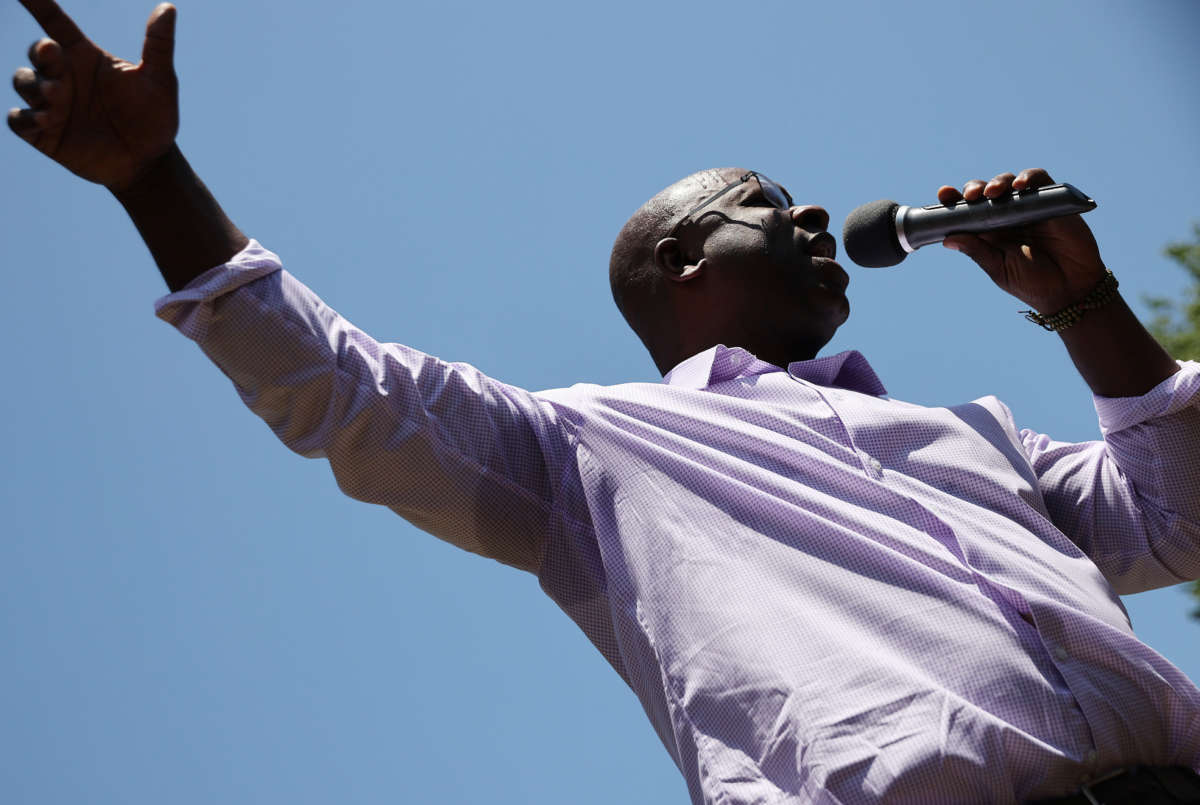Progressive advocates are calling for an end to legacy considerations in the college admissions process as the Supreme Court has indicated it is open to striking down a race-conscious admissions policy that advocates say has led to crucial advancements in equality in higher education.
As the Supreme Court appears poised to abolish affirmative action, a decades-old policy that has been integral to balancing racial diversity in higher education, progressives contend that officials truly concerned about inequities in the college admissions process should take a hard look at legacy admissions instead of demonizing affirmative action.
“Affirmative Action for the rich is legacy admissions. Yet SCOTUS is focusing on race despite almost all sitting justices justices hold [sic] Ivy League degrees,” wrote Rep. Jamaal Bowman (D-New York) on Twitter on Monday.
“The real issue is legacy admissions, not affirmative action,” he continued in a separate tweet. Other progressive advocates, like the Debt Collective, agreed in tweets this week.
By the way, my Congressman, @JamaalBowmanNY, has a bill in Congress RIGHT NOW to ban legacy status from being used as a factor in college admissions.
I expect all of you “but what about merit” people to rush over to support his campaign and raise awareness of his proposal. 🙂
— Elie Mystal (@ElieNYC) October 31, 2022
Bowman and Sen. Jeff Merkley (D-Oregon) introduced a bill earlier this year that requires colleges that receive federal funding to end legacy and donor admissions practices, saying that they represent yet another barrier for students of color and poor students in accessing colleges that have historically aimed to box out certain groups — in this case, Jewish people. Studies have found that legacy admissions often make up a large proportion of an admissions class, especially at elite universities.
There is hypocrisy inherent in scrutinizing one policy over the other, advocates say, as both legacy admissions and affirmative action disproportionately benefit certain groups — but while one benefits the already privileged, the other benefits those who have been systematically oppressed and historically discriminated against in the academic world.
Because of systemic forces still disadvantaging Black, Latinx and Native American communities, affirmative action remains a critical policy lending such students opportunities for higher education where they may otherwise be turned away. Affirmative action provides the dual benefit of diversifying college campuses.
Meanwhile, the practice of privileging applicants who have family ties to a university, especially at elite universities, gives disproportionate advantage to rich white students, research has found.
This practice is widespread across academia. As a report by Education Reform Now found this week, about 80 percent of the top universities that admit less than a quarter of applicants each year give preference to legacy applicants.
“Legacy preferences provide a birthright advantage to the children of alumni in the college admissions process,” the report read. “They represent a textbook example of systemic racism, since most beneficiaries of legacy preferences are white, while students of color and students from low- and middle-income households are much more likely to be the first in their families to go to college.”
“After a century of use, eliminating legacy preferences is long overdue, but it will be absolutely necessary for them to end should the Supreme Court bar the consideration of race in admissions, as it is expected to do,” the report continued.
The Supreme Court is in the process of hearing a case brought by a group led by conservative lawyer Ed Blum, who has a history of fighting against a variety of progressive policies including affirmative action. Blum’s argument uses Asian Americans as a bludgeon against the policy — even though the majority of Asian Americans support affirmative action — to claim that Asian Americans are being discriminated against in the admissions process.
This argument is an oversimplification, many Asian Americans who have gone through the admissions process say. Many say, instead, that Blum is using Asian Americans as a pawn in his ultimate goal of ending affirmative action, which could, depending on the outcome, lead to a precipitous drop in college admissions of Black, Latinx and Indigenous people in coming cycles and return the country to historic practices of discriminating against such people in the process.
Join us in defending the truth before it’s too late
The future of independent journalism is uncertain, and the consequences of losing it are too grave to ignore. To ensure Truthout remains safe, strong, and free, we need to raise $46,000 in the next 7 days. Every dollar raised goes directly toward the costs of producing news you can trust.
Please give what you can — because by supporting us with a tax-deductible donation, you’re not just preserving a source of news, you’re helping to safeguard what’s left of our democracy.
